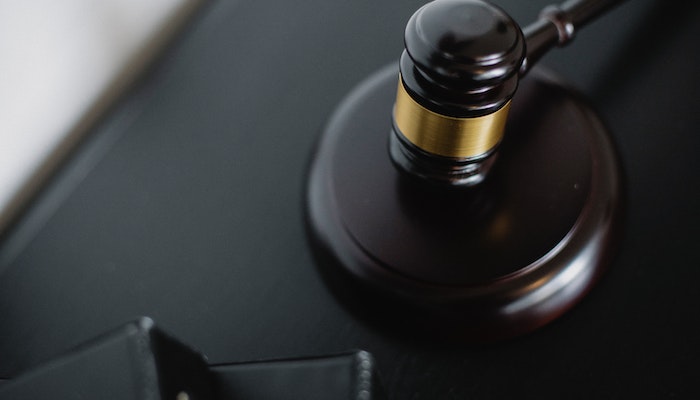Maximizing your financial reward from a personal injury claim means you must prove the accused is guilty of causing your injuries or illness. But winning the case isn’t the same as getting fair compensation. In some cases, claimants get higher financial compensation from settlements outside court. Either way, filing a claim should be your top priority if you’ve been a victim of injury or illness due to someone else’s actions.
Seeking financial compensation for your injury is your legal right, and you should try your best to receive a claim to pay for all the damages caused.
So without further ado, let’s discuss ways to ensure you can seek maximum financial remuneration from a personal injury claim.
1. Weigh the pros and cons of settlement vs. a lawsuit
Many personal injury victims want a quick way out by getting a financial reward and avoiding court trials. While a quick settlement may save you time from court proceedings and trials, it doesn’t ensure a high payout. Being unsure about the severity of your injury claim may tempt you to accept a low financial reward. So take your time and weigh the pros and cons of a settlement vs. a lawsuit with a lawyer.
It’s also important to keep the statute of limitation in mind and file a claim with your lawyer in time, according to state laws. For example, in Tennessee, you need to hire a lawyer as soon as possible, as one year is the standard time limit to file personal injury lawsuits in Tennessee. So if you’re in Knoxville, look up “personal injury lawyer Knoxville TN,” and you’ll come across experienced lawyers you can reach out to.
2. Seek medical care
When you encounter an accident or notice symptoms of an illness that could be due to your employer or a stranger’s actions, seek medical care right away. Many victims believe that withholding medical attention would help them preserve the wounds from the injury or accident.
Unattended wounds or injuries may worsen over time, become a breeding ground for infection, and cause irreversible damage to your body. Accidental injuries, if left unattended, may risk developing gangrene and require amputation in the future. Therefore, seeking medical care is the best way out. Especially with illnesses, it is easy to ignore warning signs until the damage is reversible.
Also, remember that hospital bills, prescriptions, and lab reports are essential pieces of evidence when filing a personal injury claim.
3. Accurately value your claim
Accurately valuing your claim is necessary for maximizing your financial reward. Don’t undermine the extent of your physical, mental and financial damage. If you need help valuing your claim, consult an experienced personal injury attorney. Since these specialized attorneys have experience fighting such cases, they can better judge the compensation you deserve. Apart from the obvious damages, your injury may have forced you out of employment, put a financial strain on your living standards, and caused emotional trauma. An experienced attorney would consider all damages and help value your claim accurately.
4. Gather and preserve evidence
Your evidence is crucial in determining the impact of a third party’s actions on your health and well-being. Gather everything necessary to prove the illness or injury was the accused’s fault. For example, it could be employment records if the injury occurred at work, camera footage, or medical documents proving the diagnosis. The more solid your evidence is, the stronger your claim will be.
Note that lying or exaggerating may set you up for defeat in court. So stay true to what happened and preserve as much necessary information as possible. Evidence will also help your lawyer build a strong case and determine the reward for the claim. It is crucial to store data safely until the trial ends and you receive compensation.
5. Avoid social media until the trial ends
You are advised to stay off social media until the court trial ends and receive compensation. You don’t want the defendant’s lawyer to pull up Facebook posts or pictures of you partying instead of recovering from your injuries, as you reported in court. It shows that you might have falsified or tampered with the evidence and set you up for defeat, not getting you the reward you’re seeking.
6. Explain to the defendant why a settlement is inadequate
The defendant or their lawyer would likely seek settlement outside the court. Not only does this save the defendant from legal casework and fees, but they would try to avoid paying extra fees that the court may impose on them. In case of an employer’s negligence, the court may demand the organization to invest in new systems or safety training that may be costly. Some companies are also likely to go bankrupt after court trials. So they may seek a settlement outside court rather than a trial.
But you must stand true to your initial claim. If you and your lawyer mutually decide that you will file a claim, stick with that. Your lawyer may be expecting a substantial financial benefit for you from taking the claim to court rather than a quick settlement. So be confident and stay true to presenting evidence that can strengthen your claim.
7. Hire a lawyer on a contingency basis
Most personal injury lawyers work on a contingency basis, i.e., you don’t have to pay a separate fee for their legal service. Instead, they get a percentage of cut from your financial reward if you win the case in the court of law. Working with attorneys on a contingency basis ensures you don’t have to pay out of pocket, especially when you’re in a financial crunch. Since the attorney’s fee depends on your case’s victory, they would prioritize your case and work hard to ensure you get the highest financial payout.
Conclusion
The legal system is complex, and with ongoing treatment for an injury or illness, you need a specialized attorney to fight for financial compensation on your behalf. Even with a lawyer, remember the strength of your evidence determines the amount of financial payout. Make sure you have authentic records that are relevant to the case. Lastly, don’t settle for anything outside the court unless you’ve consulted your lawyer.


